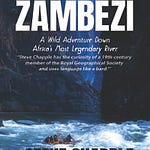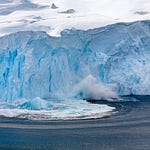Last week the US Supreme Court gutted the Clean Water Act. This endangers countless rivers, streams, marshland, and lakes with development, with pig and COFU farm waste, and all manner of chemical and factory pollutants in ways not seen since 1972.
The Supreme Court was not always thus. It’s time to remember and learn from William O. Douglas, the longest serving Supreme, appointed by FDR, 1939-1975, 36 years, a record that still stands. Unlike current scofflaws such as Neil M. Gorsuch and Samuel A. Alito, Douglas, was fond of wilderness, and an ally to conservationists.
He introduced Bobby Kennedy to river-rafting and once joked to President John F. Kennedy, “The problem with you, Jack, is you never slept on the ground in a sleeping bag.” Douglas worked the halls of power from the inside, sporting a tuxedo or a beat-up hiking hat, whatever worked.
It was Douglas who came up with the then absurd legal concept that Nature could have “standing,” that is, a mountain, a forest, a river (the sky?) could sue a corporation, as in the famous Mineral King case in which the Disney Corp. wanted to build a gargantuan ski resort east of Los Angeles. Cartoonists had a field day: “Do Trees Have Standing?” But Disney did not get to despoil the Sierra with Mineral King, and today Ecuador, India, New Zealand, and some parts of the US give legalized personhood to nature, too. In Panama for instance, endangered sea turtles have standing.
So this week we are fortunate to visit with Justice M. Margaret McKeown of the 9th Circuit Court of Appeals, a level just below the Supreme Court. The 9th Circuit hears cases from the seven western states including Wyoming where Justice McKeown is from, and California, where she now lives. The multi-tasking Justice McKeown used some of her Covid time to write CITIZEN JUSTICE: The Environmental legacy of WILLIAM O. DOUGLAS Public Advocate and Conservation Champion.
Raised “poor but not dirt-poor,” Douglas picked apples with migrant workers near Yakima as a boy and road the rails to New York’s Columbia Law School in an open boxcar. I think we can assume that no Ivy League grandee on the current Court ever took an open boxcar to law school. Douglas’ early experiences gave him sympathy, according to McKeown, for poor and working people. He regretted resigning in 1975, from a stroke, fearing that “in his absence, there would be ‘no one on the Court who cares for blacks, Chicanos, defendants, and the environment.’”
A bullied, sickly boy, Douglas found his strength—his spirituality--in hard hiking, and he used this MO to help save seashore and wilderness, once challenging the editors of the Washington Post to hike the 184 miles of the Chesapeake & Ohio Canal in Washington, DC. The editors, perhaps a bit paunchy, chickened out at Douglas’s pace, 23 miles each day, 4 mph, but changed their opposition to the project which then launched the national historical park act.
Douglas was the best friend the Sierra Club, the Wilderness Society, conservationists, and environmentalists had in Washington. He was a pioneering proponent of privacy laws and of getting the government “off the backs of the little people.” He had four wives. Declared a genius by Justice Louis Brandeis, Douglas often wrote major decisions in a few hours and then flew west to do a little fly-fishing.
But let’s let the Honorable Justice M. Margaret McKeown explain what a game-changing and complicated American William O. Douglas was.
Listen to this episode with a 7-day free trial
Subscribe to HOT GLOBE™ by Steve Chapple to listen to this post and get 7 days of free access to the full post archives.














